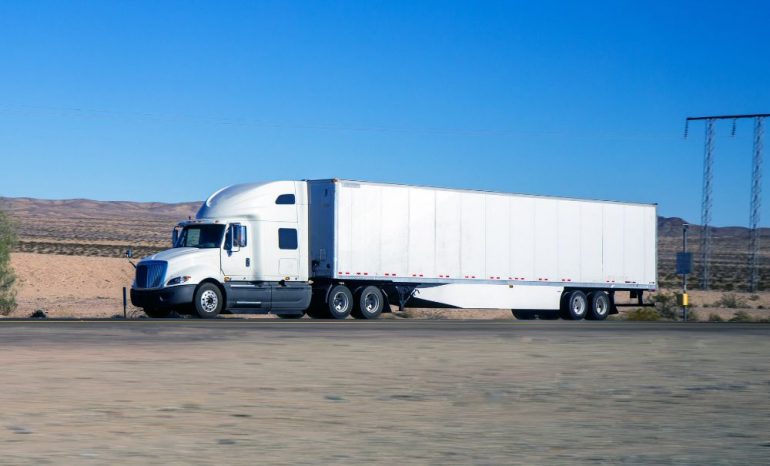Choosing the right dry van trucking company is crucial for businesses that rely on efficient and reliable transportation of goods. Whether you are a small business owner or managing logistics for a larger corporation, selecting the best dry van trucking company involves several key considerations to ensure your freight arrives safely and on time. Here’s a comprehensive guide to help you make an informed decision:
1. Assess Your Transportation Needs
Before selecting a dry van trucking company, assess your specific transportation requirements. Consider factors such as:
- Volume and Type of Freight: Determine the size and nature of the goods you need to transport. Some companies specialize in certain types of freight or have capacity limitations.
- Distance and Routes: Evaluate the geographical areas you need to cover and the routes involved. Ensure the trucking company can accommodate your shipping lanes and destinations.
- Frequency of Shipments: If you have regular shipments, reliability and scheduling flexibility become critical factors.
2. Research Potential Trucking Companies
Once you understand your transportation needs, research potential dry van trucking companies. Use the following methods to gather information:
- Online Reviews and Testimonials: Check online platforms and industry-specific forums for reviews from other customers. Look for feedback on reliability, customer service, and overall satisfaction.
- Company Reputation: Investigate how long the company has been in business and its reputation within the industry. A well-established company with a track record of success is often a safer choice.
3. Evaluate Safety and Compliance
Safety should be a top priority when selecting a dry van trucking company. Consider the following aspects:
- Safety Records: Inquire about the company’s safety statistics, including accident rates and compliance with regulations such as DOT (Department of Transportation) standards.
- Insurance Coverage: Ensure the company has adequate insurance coverage that protects your freight in case of accidents or damages during transit.
- Driver Qualifications: Ask about the hiring and training processes for drivers. Experienced and well-trained drivers are more likely to handle shipments safely.
4. Check Equipment and Technology
The quality of equipment and technology used by a trucking company can significantly impact the efficiency and security of your shipments:
- Fleet Condition: Inspect the condition of the company’s trucks and trailers. Well-maintained equipment is less likely to break down, causing delays in your supply chain.
- Tracking and Communication: Look for companies that offer real-time tracking of shipments and efficient communication channels. This helps you stay informed about the status of your freight throughout transit.
5. Compare Pricing and Services
While cost is important, it should not be the sole determining factor. Consider the overall value and services offered by each trucking company:
- Transparent Pricing: Request detailed quotes that include all potential fees and surcharges. Compare these quotes based on services provided and reliability assurances.
- Additional Services: Some trucking companies offer value-added services such as warehousing, distribution, or expedited shipping. Assess whether these services align with your needs.
6. Customer Service and Support
Excellent customer service can make a significant difference, especially during unexpected challenges:
- Accessibility: Evaluate the company’s customer support availability and responsiveness. Can you reach them easily in case of emergencies or inquiries?
- Problem Resolution: Research how the company handles issues such as delays, damages, or changes in shipment requirements. A proactive and responsive approach indicates a customer-focused mindset.
7. Consider Environmental and Sustainability Practices
Increasingly, businesses are prioritizing sustainability and environmental responsibility. Inquire about the trucking company’s efforts in these areas:
- Fuel Efficiency: Ask about the company’s initiatives to reduce fuel consumption and carbon emissions.
- Green Certifications: Look for certifications or memberships in programs promoting sustainable practices within the transportation industry.
Conclusion
Choosing the best dry van trucking company involves thorough research and consideration of your specific logistical needs. By assessing factors such as safety records, equipment quality, pricing, and customer service, you can select a reliable partner that enhances the efficiency and reliability of your supply chain operations.


